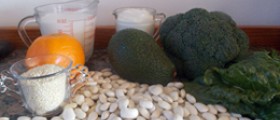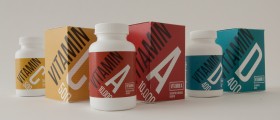
Calcium has a vital role to play in the overall function of our bodies. This mineral allows up to build stronger teeth and bones, to regulate muscle contractions, and to ensure the normal clotting of the blood. Some have also proposed the theory that calcium can help lower ones blood pressure. Calcium may also have some protective capabilities against breast and colon cancer. If one lacks calcium in the body, this might lead to a condition known as rickets.
Sources
There are many good sources of calcium available. Some of these sources include cheese, milk and other dairy products. In addition to dairy, one can find plentiful calcium in green vegetables, soya beans, tofu, soya drinks, nuts, bread and fish. Our bodies require about 700 mg of calcium each day. It should also be remembered that a calcium overdose can lead to diarrhea and stomach pain.
Dairy products, however, are the best known and most widely available sources of calcium. A cup of cow’s milk has around 276 mg of calcium. There are many people who are lactose intolerant and thus not able to consume dairy products. Other sources of calcium are available for consumption for those who cannot consume dairy. The following foods can provide enough calcium.
Cooked collard greens, one cup of which contains about 266 mg of calcium. Sardines are a good source of calcium and contain about 92 mg of calcium. Green peas, which contain about 94 mg of calcium per cup. Baked beans have about 154 mg of calcium per cup. Goat milk is a good alternative to cow’s milk, as it may be slightly easier to digest. One cup of this contains about 327 mg of calcium. In addition to goat milk, you can also try goat’s cheese, many varieties of which exist. Dry goat’s cheese contains about 200 mg of calcium per ounce.
Some other sources of calcium include canned salmon, oranges and kale. Canned salmon contains about 181 mg of calcium, as well as plenty of omega-3 fatty acids. Oranges have about 72 mg of calcium per cup, and are also a great source of vitamin C. Kale is a green vegetable that contains about 92 mg of calcium per cup.
Calcium can also be taken in supplement form. The recommended daily allowance falls somewhere between 1,000 to 1,500 mg per day. It is also advisable to take around 800 IU of vitamin D each day.

















Your thoughts on this
Loading...